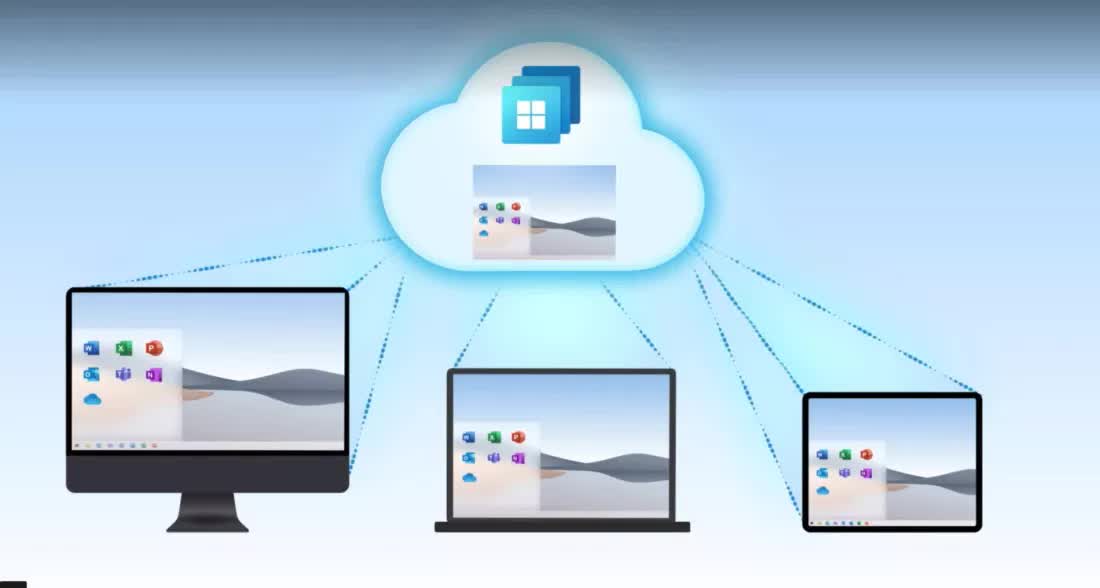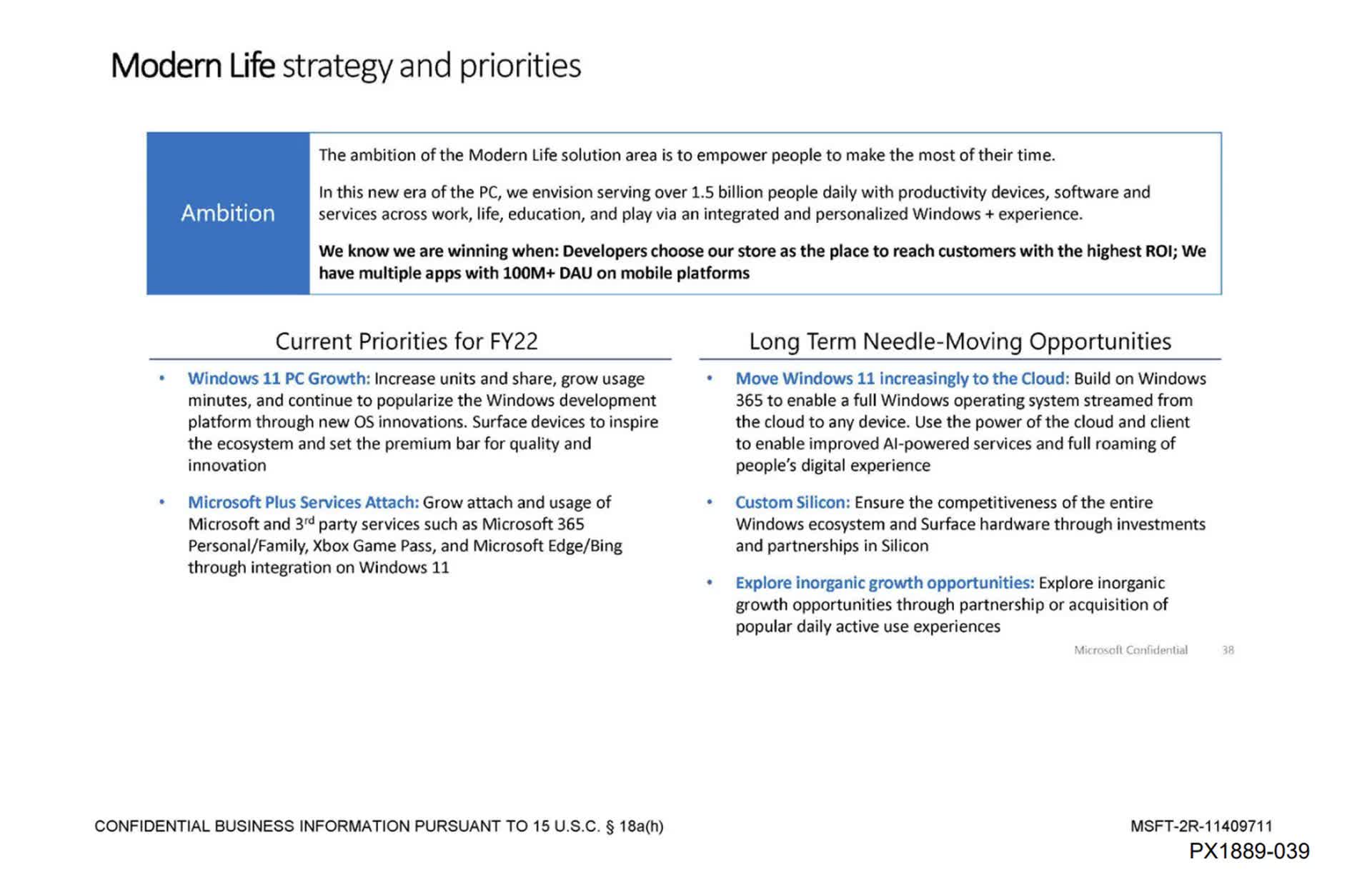A hot potato: Another interesting piece of information has been revealed in the FTC vs. Microsoft hearing, though this one isn't about games. The Redmond giant has been discussing pushing more of Windows 11 for consumers onto the cloud, and could eventually make the OS a subscription-only service.
As spotted by The Verge, an internal Microsoft document from June 2022 revealed in the hearing mentions a consumer version of Windows 365. The slide, called "Modern Life strategy and priorities," includes a bullet point labeled 'Move Windows 11 increasingly to the Cloud.'
Microsoft writes that it wants to build on Windows 365, its corporate service (part of the Azure platform) that gives customers their own secure custom Windows virtual machine that can be accessed from browsers and apps as well as Apple and Android devices. The company says it wants to enable a full Windows operating system streamed from the cloud to any device.
Microsoft envisions this pay-monthly/yearly software-as-a-service (SaaS) using "the power of the cloud and client to enable improved AI-powered services and full roaming of people's digital experience."
In May, we saw what could be Microsoft's first steps toward this plan of a subscription-based Windows 11: Windows 365 Boot. The Windows 11-exclusive feature lets users boot a local machine directly into a remote Windows 365 Cloud PC virtualized image rather than a local version of the OS first.
Microsoft enjoys success with software-as-a-service products such as Microsoft 365, formerly Office 365, which lets users access the likes of Word and Excel. Moving to a subscription-based model rather than charging a one-off payment means a regular, infinite source of income for Microsoft, so it makes financial sense to switch Windows 11 to SaaS.
Consumers, of course, aren't going to be happy about such a move. While many businesses see the benefits of subscribing to Windows 365, everyday users probably won't care about being to use Windows on any device if it means handing over another recurring subscription payment; in June last year, a survey found that people spend an average of $219 on subscriptions.
As with other cloud-based services, there's the question of spotty internet connections, ISP reliability, and server problems. People are also worried about Microsoft abusing its position and sticking even more ads in Windows or making it difficult for customers to use non-MS programs such as Chrome.
Ultimately, though, while the move would doubtlessly send more people to Mac or Linux, there will likely be enough people willing to pay the Windows 11 subscription to make the change viable, and Microsoft knows it.

